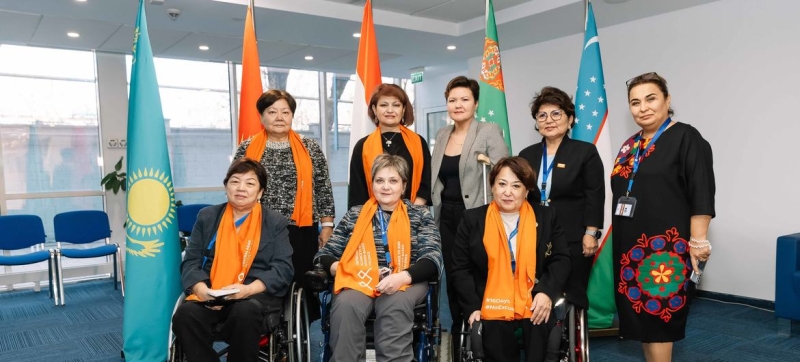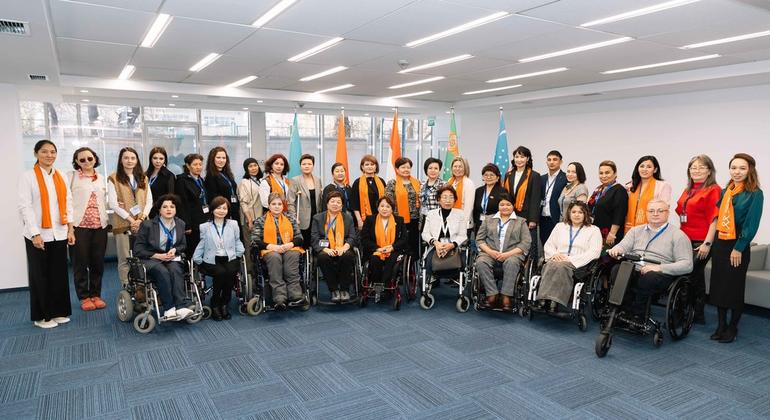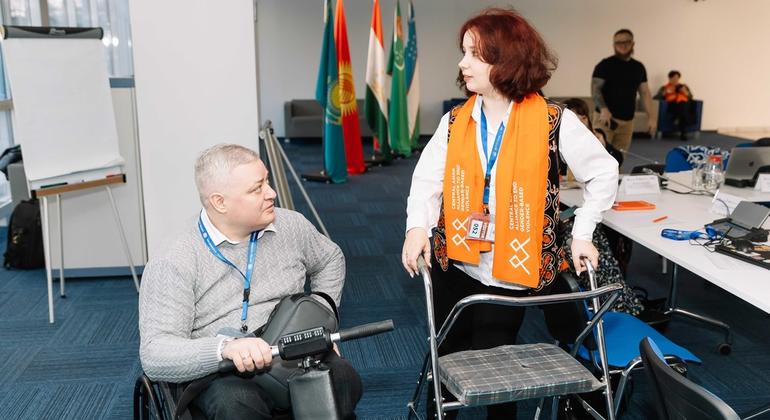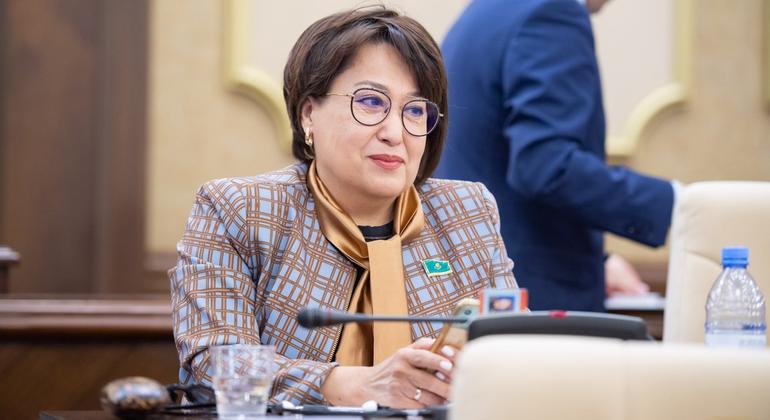
At the regional meeting of the Central Asian Alliance to End Gender-Based Violence, organized by UN Women in Almaty, participants agreed to develop a Roadmap for Action. Central Asian countries have developed a roadmap for action to protect women with disabilities from violence Kulpash Konyrova Human Rights
Despite the important steps taken by Kazakhstan, and in particular the adoption of a new law toughening penalties for domestic violence, experts note the need to improve the legislation, especially in terms of protecting vulnerable groups, such as women with disabilities. The UN News Service story from Kazakhstan is timed to coincide with the global campaign “16 Days of Activism against Gender-Based Violence”, which runs annually from November 25 to December 10, and the International Day of Persons with Disabilities, celebrated on December 3.
Challenges and legislative measures
In the spring of 2024, Kazakhstan adopted the so-called “Saltanat Law”, which toughened penalties for domestic violence, including life imprisonment for murder and sexual violence. However, according to experts, this step requires further strengthening of measures, especially in terms of effective enforcement of the law.
Doctor of Law and UN International Consultant on the Prevention of Sexual Exploitation and Abuse Khalida Azhigulova notes that many district police officers ignore the new law, which threatens its implementation. “That is, some district police officers apply the new law, while others ignore it, continuing to sympathize with the aggressors, perhaps out of a sense of male solidarity. As a lawyer, I have to deal with such situations and demand control from the leadership of police departments,” the human rights activist said in an interview with the UN News Service.
Khalida Azhigulova calls for a comprehensive approach that includes not only training of police officers, but also changing mentalities through educational programs, starting from childhood. “In order to change our mentality and develop zero tolerance for any kind of violence, we need to start not with district police officers, but with kindergartens and schools, where trained educators and teachers would focus the attention of each child on the inadmissibility of aggressive behavior,” the interviewee believes.
She recalled that human rights lessons are taught in senior grades of secondary schools, but this, according to the UN News Service interviewee, is not enough.
Features of violence against women with disabilities
One of the key topics of the global campaign “16 Days of Activism against Gender-Based Violence” in Kazakhstan was violence against women with disabilities, which has unique forms and requires specific approaches. As noted by the chairperson of the NGO “Union of People with Disabilities “Equality” Gulmira Kazakunova, violence can take forms that are inaccessible to understanding outside the context of disability, such as the creation of physical barriers or emotional pressure through isolation.
To punish a woman with a disability, they can, for example, move her wheelchair two meters or put a cup of food on a high shelf, and leave a blind person in an unfamiliar room
“To punish a woman with a disability, they can, for example, move her wheelchair two meters or put a cup of food on a high shelf, and leave a blind person in an unfamiliar room, and so on. Often, relatives and people from the immediate environment behave this way,” said Gulmira Kazakunova.
According to the WHO, women with disabilities are three to four times more likely to be subjected to violence than women without disabilities. This is due to their vulnerability, dependence on loved ones, and insufficient access to assistance infrastructure. As Lyazzat Kaltayeva, a member of the National Commission on Women and Family Policy, told the UN News Service, creating a barrier-free environment and developing specialized crisis centers should be a priority. Senator Lyazzat Kaltayeva is one of several MPs with disabilities in Kazakhstan. She is involved in protecting the rights of people with disabilities, including defending the reproductive rights of women with disabilities.

“Women with disabilities can be particularly vulnerable to sexual violence due to prejudices and stereotypes about their sexuality and their limited access to support. And the lack of sex education for women and girls with disabilities, who are mistakenly perceived as asexual, exacerbates the sexual violence they experience, as they are unable to recognize inappropriate or bullying behavior,” explained Lyazzat Kaltayeva.
The lack of sex education for women and girls with disabilities, who are mistakenly perceived as asexual, exacerbates the sexual violence they experience
Equally destructive, according to her, can be psychological violence, which manifests itself in the form of insults, humiliation, intimidation and threats. For women with disabilities, such actions increase their feelings of isolation and vulnerability.
“Economic violence can consist of limited access to funds, resources or opportunities. Women with disabilities often depend on guardians or state benefits, which makes them more vulnerable,” Kaltaeva added.
Recommendations and next steps
At the regional meeting of the Central Asian Alliance to End Gender-Based Violence, organized by UN Women in Almaty, the participants adopted a roadmap for action. In particular, it is proposed to train police and social service staff on interactions with women with disabilities; create adapted crisis centers taking into account a barrier-free environment; introduce legislative measures aimed at combating violence in specific forms, including psychological and economic violence, and educate the public about the rights of women with disabilities.
Read also:
Senator from Kazakhstan: Feeling of pity for people with disabilities is being replaced by respect
“Unfortunately, many victims of violence among women with disabilities put up with violence from their loved ones and family members as a kind of compensation for the care provided to them,” noted Lyazzat Kaltayeva.
UN Women Senior Advisor Madina Jarbussynova emphasized: “We need to talk about the problems of women with disabilities not only during campaigns, but constantly. Political will is needed to ensure their protection.”

The roadmap adopted at the meeting in Almaty is currently being finalized and should come into force by mid-December of this year. The document includes important recommendations, with special attention paid to protecting the rights of women with disabilities, which implies ensuring access to justice.
“To do this, our national legislation needs to be amended. For example, the presence of a disability in a victim of violence should be recognized as an aggravating qualifying feature when sentencing,” says Lyazzat Kaltaeva.
According to her, it is also necessary to ensure the right of women with various types of disabilities to adequate assistance at the level of the police, forensic medical examination, psychologists, social workers, and the court. “This especially concerns women with hearing, speech, vision, and intellectual disabilities. It is also necessary to introduce a guardianship system that provides for the possibility of choosing one’s legal representative, and/or the right to have several guardians, and/or the possibility of applying to the court/police independently. Such measures are necessary to prevent abuse by legal representatives/guardians,” Kaltaeva emphasized.

Kazakhstan has made significant progress in combating gender-based violence, but effective protection of women, especially those with disabilities, requires a more holistic and systemic approach. Only by combining the efforts of the state, civil society and international organizations can real change be achieved and security and equal rights for all women be ensured.
